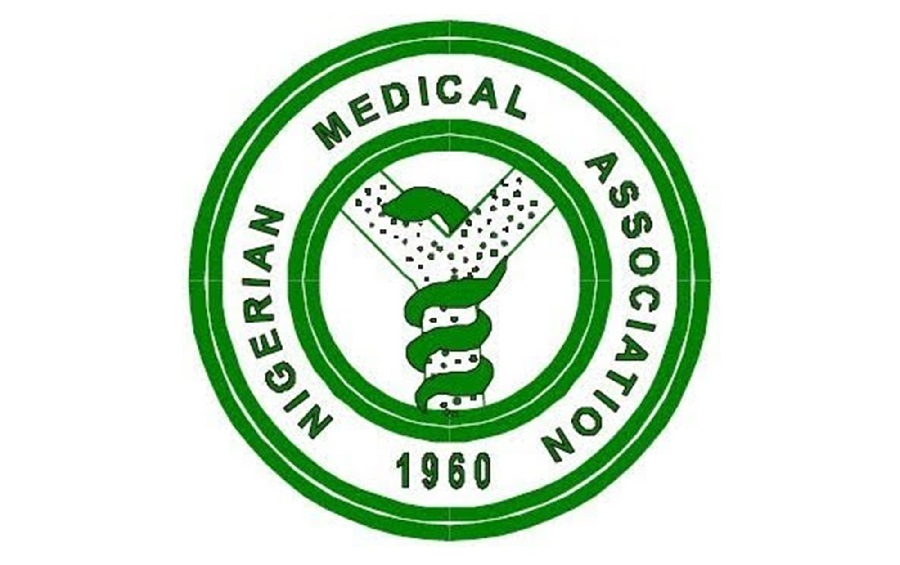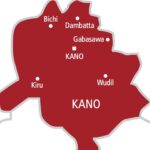On the 27th of October, while most people were toiling away at work, history was being made in Kano, Nigeria. For the first time ever, the Nigerian Medical Association (NMA) Kano State Chapter organised a professional debate between gubernatorial candidates ahead of the 2023 elections. In attendance were Dr Nasir Yusuf Gawuna of the All Progressives Congress (APC), Salihu Tanko Yakasai of the People’s redemption Party (PRP), Ibrahim Khalil of the African Democratic Congress (ADC) and Bashir Bashir of the Labour Party (LP). The gubernatorial candidate for Action Democratic Party (ADP), the charismatic Sha’aban Sharada was unavoidably absent as he was said to have travelled out of the country. However, he was ably represented by his running mate Rabi’u Bako.
Noticeably absent without any tangible reason were Sadiq Wali of the People’s Democratic Party (PDP) and the famous Abba Yusuf “Abba Gida Gida” of the New Nigeria People’s Party (NNPP).
- JUST IN: Buhari approved Naira Redesign, CBN replies finance minister
- Naira redesigning ill-timed, Finance minister knocks CBN
The event started with the welcoming address by the Chairman of the NMA Dr Abdullahi Kabir Suleiman where he said the debate was primarily organised to increase awareness of health issues amongst the candidates and to put health on the front burner of their administration’s agenda when voted into office come 2023.
The NMA chairman raised concern about the lack of indigenous pharmaceutical companies in Kano despite its increasingly huge population.
“For instance, the major supplier of Antimalarial drugs in Kano is India, followed by China. This means that if India and China refuse to sell antimalarial drugs to Nigeria, we will be left with a major crisis in treatment which will increase the number of deaths from malaria in the state.”
I shudder to think of such a situation.
The moderator of the Question and Answer session was Dr Rabiu Jalo, a senior lecturer of the department of community medicine, Aminu Kano Teaching Hospital. He brilliantly opened the discussion by citing some of the key indicators for health care worldwide.
“The RMNCAH+N continues to lag behind national targets as the states struggle with high maternal and neonatal mortality rates, persistent human resource gaps and low community participation among other issues. Health Facility delivery is still low at 25.8%, Skilled Birth Attendants (27%), Infant Mortality Rate is 113 per 1000 live births, Maternal Mortality Rate is 1024 per one hundred thousand live births and Zero dose children 30%.”
RMNCAH+N is an acronym for-Reproductive, Maternal, Newborn, Child and Adolescent Health and Nutrition. These indicators were developed by the WHO for the comparisons of health indices between countries. Zero-dose children are children who despite decades of progress increasing access to immunisation in lower-income countries, have not received any form of vaccination. What these statistics mean is that 30% of the children in Kano have not been vaccinated.
The questions asked centred around five thematic areas: 1) Sustainable Man power in the healthcare system 2) Healthcare Infrastructure 3) Kano State Maternal, Newborn and Child health program (free maternity program) 4) Kano state Drug Supply Chain and 5) Intersectoral collaborations with other sectors related to health.
When discussing the issue of manpower, Dr Jalo stated that Kano with a projected population of over 15 million, currently had only 1063 doctors and 2741 nurses serving all the primary, secondary and specialist health centers in the state and asked what the candidates would do to improve the present unpleasant situation. Here, all five candidates present were unanimous in their answers. They pledged to employ more health workers and improve their working conditions.
What have we not heard before? Increased pay? Money falling from trees? Yogurt flowing from taps? A land overflowing with milk and honey? At this point, I might have to visit ENT clinic to clean the build-up of toxic wax in my ears.
To be fair, the candidates spoke very well. The current deputy governor, Nasiru Gawuna who is also vying for the position of the governor was ahead of the game, as expected. Due to his position and medical personnel himself, he was conversant with many of the health care projects in the state. About the free maternal healthcare, he confirmed that Kano state had enough medicines to cater to women and children. However, the main problem was the uptake. Women in rural communities still shunned health care services and so, incentives like soap and baby clothes had to be given during delivery to encourage them to patronise the hospitals. He stated that campaigns were presently on to sensitize men and women on the benefit of the free maternal health care for women. He bragged that Kano was the best in Nigeria in terms of free maternal health care and Drug Revolving Fund.
Dr Gawuna reiterated his commitment to building a new comprehensive drug market in Kano. The structure was already in place and very soon, he promised, the Sabon Gari pharmaceutical giants would be moved to the new structure with state-of-the-art amenities. The place boasted of cold rooms for vaccine storage and had been inspected by NAFDAC, NDLEA and Pharmaceutical Society of Nigeria (PSN). He ended by laying emphasis on his political will to promote healthcare and address the drug menace in Kano State.
Another remarkable speaker was Bashir Bashir of the Labour Party. Like his ‘Oga at the top’, Peter Obi, he quoted a lot of statistics. He talked at length about the number of people dying from malaria and promised to embark on a massive antimalarial campaign. He spoke about a mental health insurance bill and the need to introduce subsidy on drugs similar to what was obtainable in the UK. True to his party’s principles, he advocated for classification of the health care system saying the rich should pay for the poor. In his opinion, healthcare should not be completely free as it was not a sustainable model. He also did not feel it was worthy to build new health facilities but instead fund and re-equip the existing structures. He ended by commending the doctors of Kano state and promised to retrain health care practitioners if voted.
PRP candidate, Salihu Tanko Yakasai handled most questions well. As a former official in the APC government, he was also knowledgeable about many health projects. He disagreed with the LP candidate about the classification of health care resources. In his opinion Kano State Contributory Healthcare Scheme (KCHIMA) was already doing very well in making sure that healthcare resources are distributed in an equitable manner. True to his manner, he made a few subtle jabs at the present administration on their lack of political will to combat counterfeit drugs, their poor drug supply and logistics model and their inability to prosecute drug offenders. If elected, he promised to return to the drawing board and map of strategies for continuity and sustainability, especially in the Muhammadu Buhari cancer center which was working at sub-optimal level.
ADP candidate represented by Rabiu Bako spoke about the need to set up a trust fund that would sustain the already existing health facilities and promote more equitable distribution of health resources. He felt that this would tackle the problem of the Muhammadu Buhari Hospital which everyone agreed was functioning at abysmal capacity. To this, Yakasai responded that the Kano Health Trust Fund (KHETFUND) was already in place and what was lacking was political will and strategic planning. The ADP running mate spoke at length about funding health care and how the resources were being underutilised.
Perhaps the least impressive candidate in my opinion, was Ibrahim Khalil of the ADC. He spoke very briefly about the need to consult with specialists in the field of healthcare while designing policies and strategies in the state. In his characteristic preaching style, he spoke about not to allowing ourselves to be fooled by big words and to be truthful in our words and deeds.
The debate ended with closing remarks by the moderator and the NMA chairman thanking them for their presence and visionary ideas for improving healthcare care in the state.
May the best man win!



